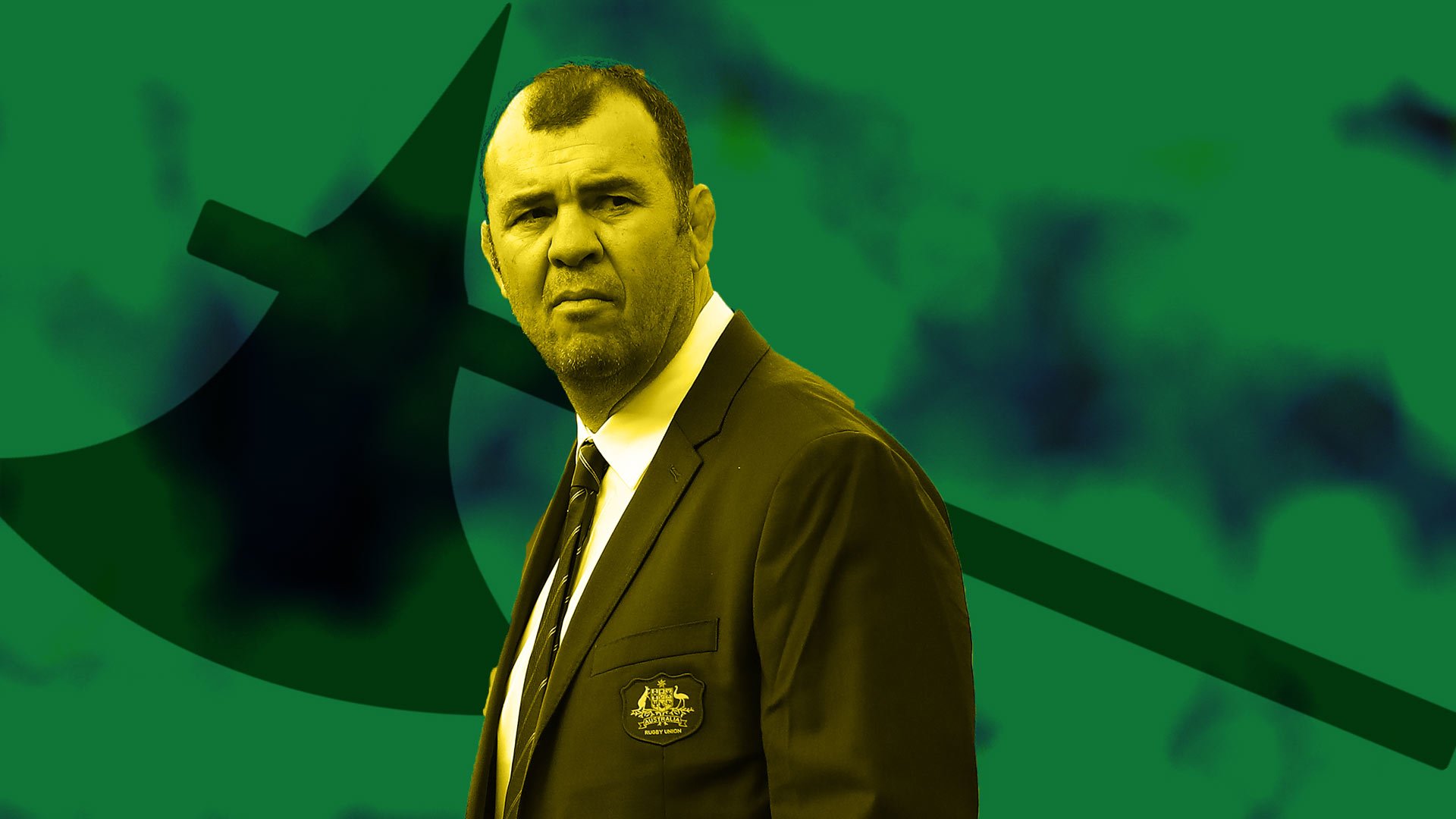Is Michael Cheika the problem for Rugby Australia?

Is it the cattle or the coach? Or, something bigger?
The calls for Michael Cheika to be sacked have been met just as loudly by supporters who want to keep the embattled coach around. There are fingers pointed everywhere, from player fitness, to player selections, to coaching and game strategy.
These are all reasons for the Wallabies’ bad opening run in the Rugby Championship this year. But the resulting public anger seems to stem not from the loss itself, but how they are losing, which is really the bigger picture – there has been structural failure in Australian Rugby years in the making, with the way they play the game failing them.
The blame needs to be shared all around, starting at the top with Rugby Australia and filtering down. None of the Australian Super Rugby sides have been particularly strong in this World Cup cycle. Are these results really something unexpected?
Who would have thought the All Blacks, who have four Super playoff teams year-in-year-out, would thrash a Wallaby side made up of players from a weak conference where only one team makes the playoffs, often by virtue of automatic entry?
There are long-term issues at play within rugby in Australia, a game in decline and losing ground to other football codes. The symptoms are just showing at the top but have been here for some time.
The 2015 Rugby World Cup final appearance was success built on dumb luck – a bad refereeing call against Scotland and a weaker side of the draw, which gave them Argentina in the semi-final. In an alternate universe, they are bounced at the quarterfinal stage and Cheika isn’t hailed as a ‘saviour’ and may have been sacked already.
After four years, you see the real story – it’s hard to be lucky over the long-term.
In order to prop up a flailing national sport, Cheika has to call on older players from the last generation because the system isn’t producing. The Giteau rule is a short-term fix to a long-term problem.
Cheika doesn’t develop Wallabies, the regions are supposed to. The unions that oversee the majority share of a players’ development are failing.
One of only two strong nurseries in the country, Queensland, has been a basket case for years now – dogged by infighting, politics and a lack of accountability. The questionable appointment of the under-qualified Richard Graham as head coach sent the Reds spiraling back 20 years and they haven’t recovered. Despite continually losing over a three period, he was handed an extension before being sacked and paid out.
Brad Thorn has come in as another short-term fix, fresh from just finishing his playing career. Contrast that with Crusaders head coach Scott Robertson, who started his coaching career volunteering in Christchurch youth rugby coaching an under 14 B’s side back in the mid-2000s. He spent five years coaching at grassroots level before landing an assistant gig with Canterbury, where he spent another five years. His Super Rugby success has been close to fifteen years in the making.
The coaching at Super Rugby level in Australia is not up to standard, with the same candidates proven to be inadequate, recycled and persisted with. The same coach who took the Rebels to a 1-15 record and one of the worst for-and-against records in Super Rugby history lands a job as the defence coach for another team the next year. Go figure.
Where is the innovation coming from?
Professional coaches in Australia aren’t often earning their stripes by proving their worth at each level, and the ones that do find success at lower levels don’t seem to be progressing through. Innovation breeds progress, but there haven’t been result-based employment decisions to drive that.
Players that have left Australia speak of a ‘safety obsession’ within professional coaching ranks. A conservative approach that favours ‘safe’ players, who don’t take risks and don’t necessarily have ‘vision’ and attacking flair but do have the ability to stick to instructions. And when you consider those giving the instructions have limited-to-no track records of success, you can see why the teams fail.
The game has regressed at the pro levels in Australian rugby as ineffective coaches have taken over. Size is valued over skill, power over finesse, physicality over decision-making, in some cases you would think talent over character. Players are slipping through the cracks and making it elsewhere in different systems – case in point Pete Samu.
The systems feeding into the top level are responsible for this, and it will get worse.
This is an aging Wallaby team out of necessity. When names like Will Genia, Kurtley Beale and David Pocock retire the rug will be pulled out from beneath them. Even Bernard Foley, who is the flyhalf equivalent of ice skater Steven Bradbury (the winner by default), will leave a massive hole.
Cheika’s failure is a systemic one, shared by all involved in Australian rugby. In a results-driven business, they must matter – at all levels not just with the Wallabies team.













































































